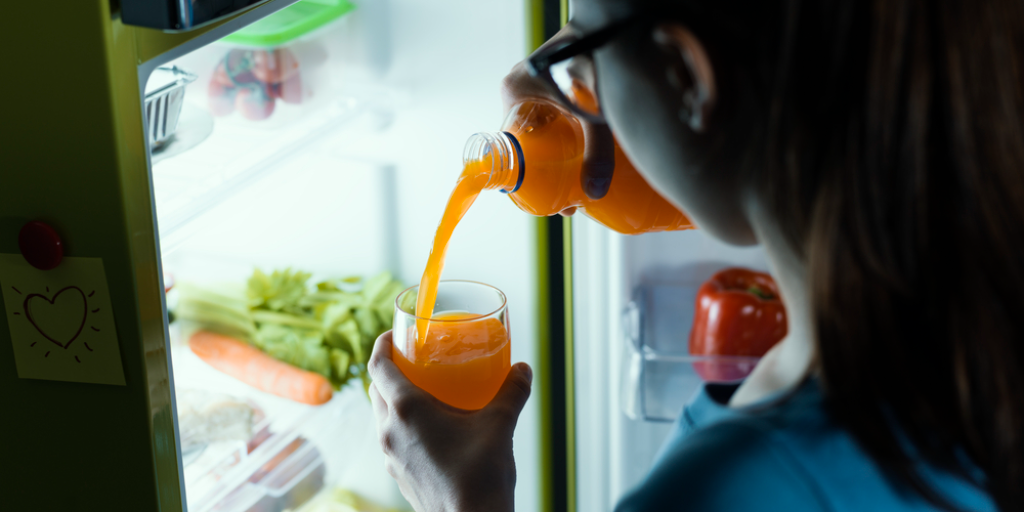On hand
When you have something on hand, that thing is available and it’s close. You can get to it easily.
In today’s main story, we were talking about some differences I’ve noticed in my first year in Mexico : differences between daily life in the U.S. and daily life here. And I gave the example of orange juice. If you open the average refrigerator in the average home in America, you will probably find orange juice in a cardboard or plastic container. Most people have some orange juice on hand. They have it available. There’s some in the refrigerator. They don’t have to go anywhere to get it. They have enough to pour a small glass if they’re thirsty.
But here’s the thing. That juice was squeezed far away. It was then put on a truck and shipped to the grocery store, where it sat in the refrigerated section for a few days. So, it’s “fresh” orange juice, in the sense that it’s not frozen and it doesn’t have added ingredients. But it’s not like someone squeezed it that morning.
In Mexico, though, it’s not common to buy orange juice in a grocery store like that. So most Mexican households won’t have orange juice on hand. But the good news about being here is that you can go outside to a juice stand on the street (and there are lots of them) and someone will squeeze you some fresh orange juice. But you don’t have it on hand—you don’t have it readily accessible in the house.
Oh, speaking of the differences between the U.S. and Mexico: here, you can’t drink the water out of the tap. So I get large jugs of water. Well, I always have an extra, sealed jug on hand. The reason is, the big jug doesn’t always run out at convenient times. In my first few months, I’d be pouring a glass of water to take with me to my bedroom at night, and that’s when it would run out. Or I’d be in the middle of cooking a meal and I’d need water to make rice—and that’s when it would run out.
I quickly learned my lesson: I need to have an extra jug of water on hand. I need to have some extra bottled water available and accessible in my house, for when I need it.
If someone gets hurt in your house, are you prepared? It’s always a good idea to have a first-aid kit on hand. Or maybe you don’t have a kit, but you have the supplies on hand. You have bandages, disinfectant, pain killers, antibiotic ointment, cotton balls, whatever—you have enough to handle a small injury at home, and you have it in a way you can access it. It’s on hand.
Do you have overnight guests a lot? I don’t. But some people have parties, visitors, friends, family, and sometimes people want to stay the night. If that’s what your house is like, then you want to have some extra sheets, towels, pillows, and blankets on hand. You want to have those things available so that your guest can feel comfortable.
If you live in an area that loses power a lot, you might want to have some flashlights, batteries, and supplies on hand. There’s nothing worse than losing power at night and having no way to see. These days, you might also want to have a spare phone battery on hand (or a portable charger on hand) in case you need an emergency charge.
There might be someone at your office that’s in charge of keeping office supplies on hand. That person will make sure there are pads of paper, pens, notebooks, things like that—you want those things on hand in the office.
If your car breaks down, you might need a spare part. Your mechanic will have some of the most common parts on hand, so he can fix your car without making a special order.
I always have several books on hand, in case I finish a book and find myself in need of some reading material.
See you next time!
And that’s all for today’s Plain English. The full transcript of today’s lesson is available at PlainEnglish.com/613. Thank you for indulging me on a more personal story today. Next week, we’ll have another current events story. See you then.
Use realistic expressions like a native speaker

